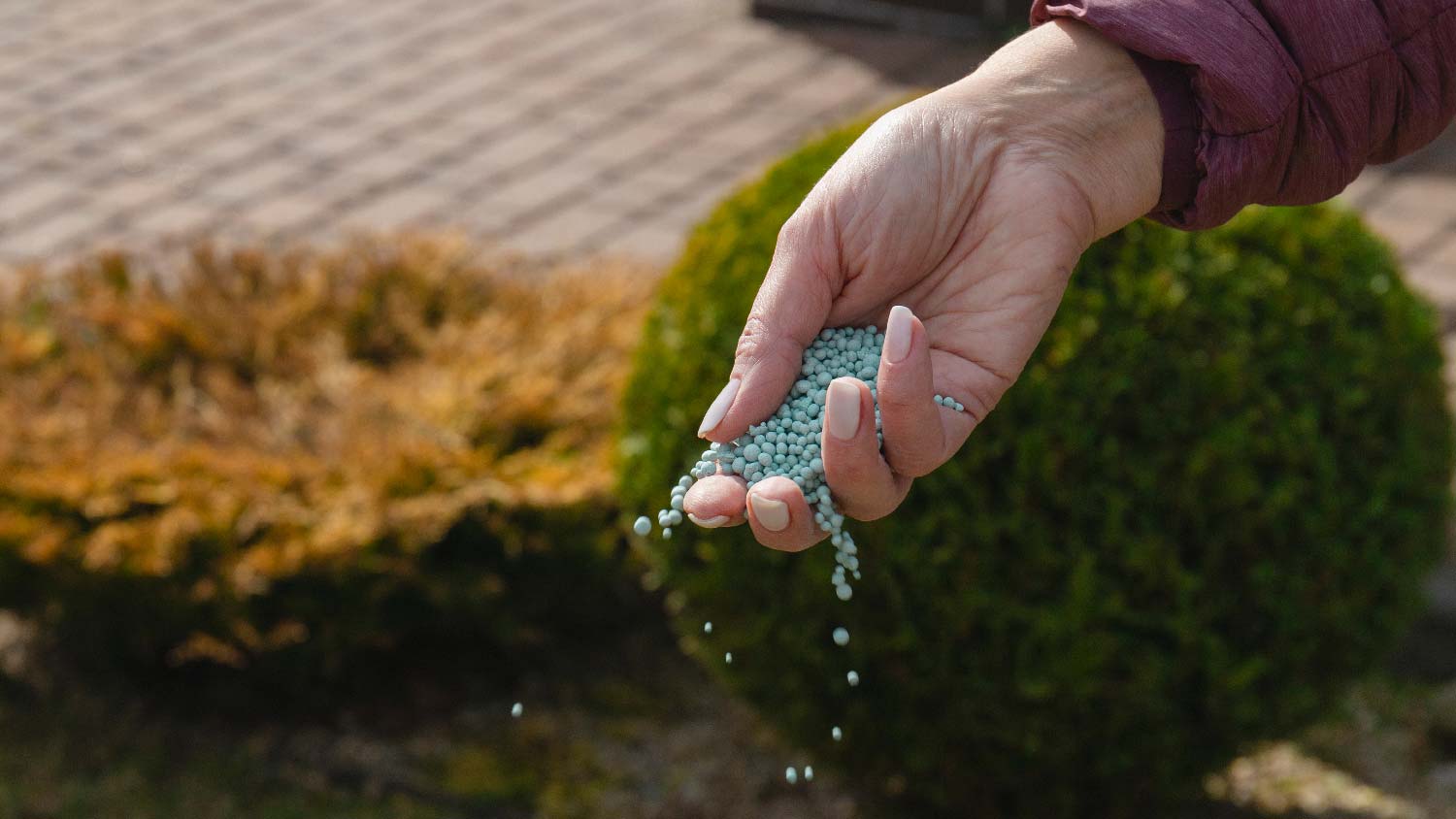
Removing an old lawn is often necessary to plant new grass or build a new outdoor structure. Find out what to budget for your lawn removal cost.
Give your grass a nitrogen boost


Nitrogen is a nutrient that helps keep grass green and blades long and strong.
You can find nitrogen in lawn fertilizer.
It’s best to apply nitrogen to lawns in the spring, early summer, and early fall.
Signs of nitrogen deficiency include pale green grass, less growth, and more weeds.
A regular schedule of fertilizer, watering, and mowing will produce best results.
You may have heard of nitrogen in your high school chemistry class, and this nutrient is essential to more than the periodic table. It’s vital to growing thick, green grass, but what exactly does nitrogen do for grass?
Once applied to your soil, nitrogen helps maintain healthy growth and allows your lawn to withstand rough conditions throughout the season. Don’t hesitate to lean on a lawn fertilizing service for help determining the best timing for your lawn’s next feeding.
When working with lawn fertilizer and other chemicals, take measures to prevent the products from contacting your skin and eyes. Be sure to wear protective gear like gloves and a dust mask to stay safe.
You can attribute what you associate with healthy grass—its vibrant green color, the length of its blades, and how thick it grows— to a healthy dose of nitrogen. This key nutrient is essential for grass to thrive, which is why it’s so important. Nitrogen is a nutrient that embeds in your soil to help grow grass or plants. Most fertilizers include this essential nutrient, and it assists in the production of chlorophyll, which makes grass green, as well as amino acids, which create the protein that helps grass alive.
If you use nitrogen correctly, it can give your grass many advantages. The following benefits are often a result of adding nitrogen to your lawn:
It enhances the green color of your grass.
It helps promote healthy root growth so grass can better withstand tough conditions.
It supports the creation of enzymes and other proteins that help grass stay healthy and strong.
It can boost grass growth and help speed up the formation of new blades.
It improves the health of other plants growing in your yard.

They say timing is everything, which is also true for lawn fertilizer treatment. The best time to apply nitrogen to your grass is early to late spring, early summer, and early fall. You want to add nitrogen to your grass when temperatures and conditions aren’t extreme, so spring, early summer, and fall are the optimal seasons.
For best results, perform a soil test to determine how much nitrogen your lawn needs before heading to your lawncare or hardware store for fertilizer. Then, once applied, it’s best to keep a regular lawn maintenance schedule of mowing, watering, and fertilizing to maintain results.
When working with lawn fertilizer and other chemicals, take measures to prevent the products from contacting your skin and eyes. Be sure to wear protective gear like gloves and a dust mask to stay safe.
The good news is that if your lawn is lacking in nitrogen, it will tell you through one or more of the following signs:
Grass is lighter in color, likely as a result of a decrease in photosynthesis
Slower recovery from regular foot traffic
Decrease in plant growth
Increase in weed growth or bare patches on your lawn
Puddles of runoff water that take a long time to disappear
If the color of your grass starts fading to light green or yellow, becomes more susceptible to brown patches or diseases, and starts to thin out, your lawn would likely benefit from additional fertilizer to get your grass back in peak condition. If you’ve tried to add nitrogen without success, a lawn fertilizing service near you can take a look at your yard and provide a treatment plan catered to your specific needs.
From average costs to expert advice, get all the answers you need to get your job done.

Removing an old lawn is often necessary to plant new grass or build a new outdoor structure. Find out what to budget for your lawn removal cost.

The cost to reseed a lawn can vary depending on the size of your yard and the condition of the soil. We’ll help you figure out the true cost of reseeding or overseeding your lawn, along with whether or not you should hire a professional.

The cost to renovate your lawn depends on the extent of the damage. Our guide will show you how much lawn renovation costs.

Spot common warning signs of too much nitrogen in the lawn and learn how to fix damage from overfertilizing or pet urine to keep grass green and healthy.

Wondering how to stop grass from growing into your flower beds? Use these four helpful methods for keeping your grass in the right place.

Hard dirt makes it, well, hard for green grass to flourish. Learn how to moisturize and feed your soil so grass can grow in this seven-step informational guide.